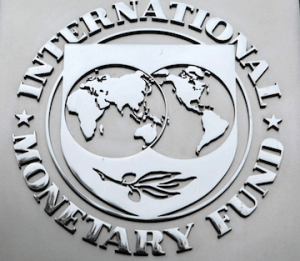IMF projects global growth at 3.4% in 2016
 The International Monetary Fund (IMF) forecasts global economic growth to be 3.4 per cent in 2016.
The International Monetary Fund (IMF) forecasts global economic growth to be 3.4 per cent in 2016.
The IMF in its World Economic Outlook notes that global growth, currently estimated at 3.1 per cent in 2015, is projected at 3.4 per cent in 2016 and 3.7 per cent in 2017.
It notes that growth in emerging market and developing economies is projected to increase from 4 per cent in 2015—the lowest since the 2008–09 financial crisis—to 4.3 and 4.7 per cent in 2016 and 2017, respectively.
“The pickup in global activity is projected to be more gradual than in the October 2015 World Economic Outlook, especially in emerging markets,” it said.
According to the IMF, in 2015, global economic activity remained subdued. Growth in emerging market and developing economies—while still accounting for over 70 per cent of global growth—declined for the fifth consecutive year, while a modest recovery continued in advanced economies.
“Three key transitions continue to influence the global outlook: (1) the gradual slowdown and rebalancing of economic activity in China away from investment and manufacturing toward consumption and services, (2) lower prices for energy and other commodities, and (3) a gradual tightening in monetary policy in the United States in the context of a resilient US recovery as several other major advanced economy central banks continue to ease monetary policy,” it adds.
The IMF further notes that overall growth in China is evolving broadly as envisaged, but with a faster-than-expected slowdown in imports and exports, in part reflecting weaker investment and manufacturing activity, indicating that these developments, together with market concerns about the future performance of the Chinese economy, are having spillovers to other economies through trade channels and weaker commodity prices, as well as through diminishing confidence and increasing volatility in financial markets.
The IMF says manufacturing activity and trade remain weak globally, reflecting not only developments in China, but also subdued global demand and investment more broadly—notably a decline in investment in extractive industries. In addition, the dramatic decline in imports in a number of emerging market and developing economies in economic distress is also weighing heavily on global trade.
The IMF stating that oil prices have declined markedly since September 2015, reflecting expectations of sustained increases in production by Organization of the Petroleum Exporting Countries (OPEC) members amid continued global oil production in excess of oil consumption, adds that futures markets are currently suggesting only modest increases in prices in 2016 and 2017. Prices of other commodities, especially metals, have fallen as well, it says.
It indicates that lower oil prices strain the fiscal positions of fuel exporters and weigh on their growth prospects, while supporting household demand and lowering business energy costs in importers, especially in advanced economies, where price declines are fully passed on to end users.
While admitting that a decline in oil prices driven by higher oil supply should support global demand given a higher propensity to spend in oil importers relative to oil exporters, in current circumstances several factors have dampened the positive impact of lower oil prices.
These factors it says are, first and foremost, financial strains in many oil exporters reduce their ability to smooth the shock, entailing a sizable reduction in their domestic demand. The oil price decline has had a notable impact on investment in oil and gas extraction, also subtracting from global aggregate demand.
“Finally, the pickup in consumption in oil importers has so far been somewhat weaker than evidence from past episodes of oil price declines would have suggested, possibly reflecting continued deleveraging in some of these economies. Limited pass-through of price declines to consumers may also have been a factor in several emerging market and developing economies,” it says.
By Emmanuel K. Dogbevi
